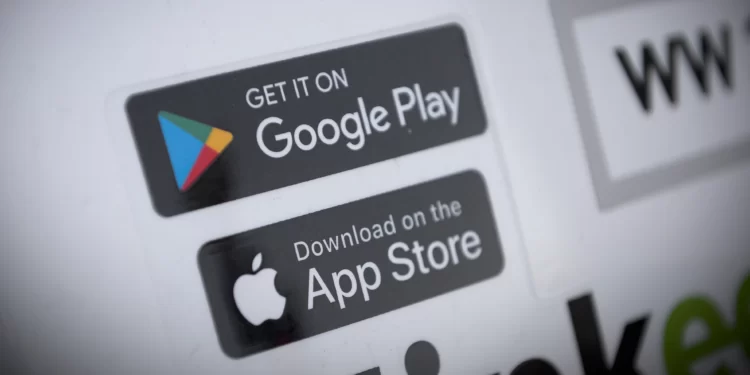Google and Apple play a significant gatekeeping role in the mobile app ecosystem by controlling and restricting the distribution of competitive services through their app stores (Google Play Store and The App Store, respectively), thus creating “suboptimal” conditions of competition in the industry, a new report says.
The leading tech giants have been accused of impeding and restricting competition through dominant and harmful practices in Competition in the Mobile Application Ecosystem released on Wednesday by the US Commerce Department. It sheds light on Google and Apple’s app store policies that create “unnecessary” barriers and costs for mobile developers, resulting in new apps lacking features, higher development and roll-out costs, damaged customer relations, and several apps failing to reach a large number of consumers.
“These setbacks mean that app developers and alternative mobile app stores are not afforded the opportunity to compete on a fair playing field — whether with each other or with the products and services offered by the gatekeepers,” states the Commerce Department’s National Telecommunications and Information Administration (NTIA) in the report. “All of these factors translate to potential losses for consumers: prices that are inflated due to the fees collected by gatekeepers, innovation that is hampered by policy decisions to limit access to smartphone capabilities, and the loss of choice of apps that are not featured or even accessible for smartphone users.”
The report adds that although other distribution mechanisms for mobile apps are possible, there remain significant barriers to alternatives and meaningful competition in the mobile app ecosystem. Google and Apple have created several restrictions through their business choices that reduce innovation in the market. Consumer convenience, privacy and security have been touched upon in the report as well.
Both companies responded by rejecting the conclusions presented in the report.
“We respectfully disagree with a number of conclusions reached in the report, which ignore the investments we make in innovation, privacy and security — all of which contribute to why users love iPhone and create a level playing field for small developers to compete on a safe and trusted platform,” an Apple spokesperson said in a statement.
“NTIA recognizes the importance of interoperability, multiple app stores and sideloading, which Android’s open system already supports — all while ensuring privacy and security,” was Google’s response.
The regulatory scrutiny around Big Tech firms in terms of anti-competitive practices has significantly increased in the US over the past year. Recently, Google was sued by the US Justice Department and eight states for “monopolising” the digital advertising market. In 2022, India’s competition watchdog fined Google millions of dollars for forcing app developers to use its own billing system and restricting them from availing third party payment services in a series of antitrust probes.





